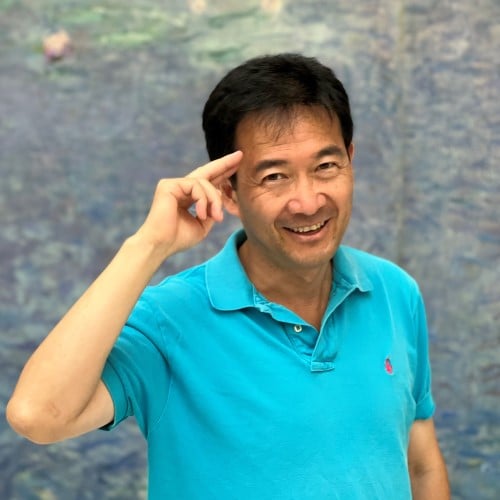About This Webinar
Chemical microscopy that utilizes fingerprint vibrational spectroscopic signals opens a new window to visualizing the orchestra of molecules and biological structures inside living systems. Ji-Xin Cheng, professor at Boston University, and his research team have recently started to harness photons to modulate the behavior of cells. This work includes the photoacoustic modulation of neurons at ultrahigh spatial precision and the photolysis of intrinsic chromophores to eradicate superbugs, or drug-resistant bacteria. Cheng and his team have been dedicated to pushing the boundaries of chemical microscopy within the spectrum of molecular spectroscopy, discovering molecular signatures in diseases, supporting the commercialization of chemical microscopes for broad use, and translating these techniques to clinical use for molecule-based precision diagnosis or treatment.
Who should attend:
Researchers, clinicians, lab managers, engineers, and those who utilize biophotonics in their work. Those who are interested in or who work with chemical microscopy, spectroscopy, photoacoustics, photolysis, and molecular research in industries such as medicine, biomedicine, pharmaceuticals, and cancer research.
About the presenter:
 Ji-Xin Cheng, Ph.D., is the inaugural Theodore Moustakas Chair Professor in Photonics and Optoelectronics at Boston University. He attended the University of Science and Technology of China and received his doctorate in bond-selective chemistry there in 1998. After postdoctoral training on ultrafast spectroscopy at the Hong Kong University of Science and Technology, he joined Sunney Xie’s group at Harvard University. There he spearheaded the development of coherent anti-Stokes Raman scattering (CARS) microscopy, which allows high-speed vibrational imaging. Cheng joined Purdue University in 2003 in the Weldon School of Biomedical Engineering and the Department of Chemistry and was promoted to full professor in 2013. He is a fellow of Optica and the American Institute of Medicine and Biological Engineering. He is also an associate editor of Science Advances. Cheng initiated the inaugural Gordon Research Conference on Chemical Imaging, which will be held in August 2023. He has received many honors, including the 2020 Pittsburg Spectroscopy Award from the Spectroscopy Society of Pittsburg; the 2019 Ellis R. Lippincott Award from Optica, the Society for Applied Spectroscopy, and the Coblentz Society; the 2016 Research Award from the Purdue University College of Engineering; and the 2015 Craver Award from the Coblentz Society.
Ji-Xin Cheng, Ph.D., is the inaugural Theodore Moustakas Chair Professor in Photonics and Optoelectronics at Boston University. He attended the University of Science and Technology of China and received his doctorate in bond-selective chemistry there in 1998. After postdoctoral training on ultrafast spectroscopy at the Hong Kong University of Science and Technology, he joined Sunney Xie’s group at Harvard University. There he spearheaded the development of coherent anti-Stokes Raman scattering (CARS) microscopy, which allows high-speed vibrational imaging. Cheng joined Purdue University in 2003 in the Weldon School of Biomedical Engineering and the Department of Chemistry and was promoted to full professor in 2013. He is a fellow of Optica and the American Institute of Medicine and Biological Engineering. He is also an associate editor of Science Advances. Cheng initiated the inaugural Gordon Research Conference on Chemical Imaging, which will be held in August 2023. He has received many honors, including the 2020 Pittsburg Spectroscopy Award from the Spectroscopy Society of Pittsburg; the 2019 Ellis R. Lippincott Award from Optica, the Society for Applied Spectroscopy, and the Coblentz Society; the 2016 Research Award from the Purdue University College of Engineering; and the 2015 Craver Award from the Coblentz Society.